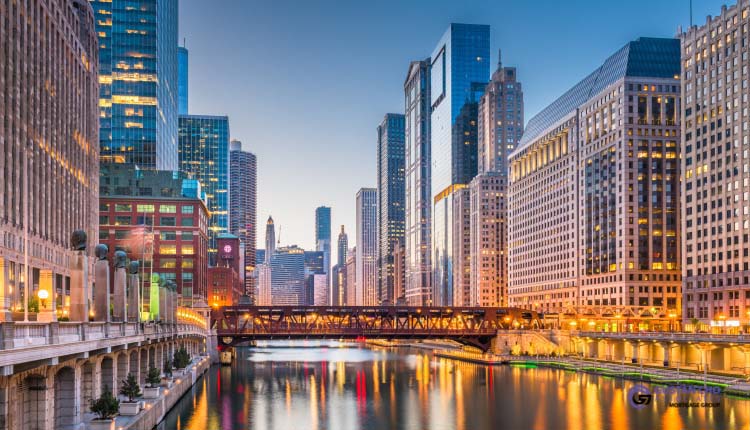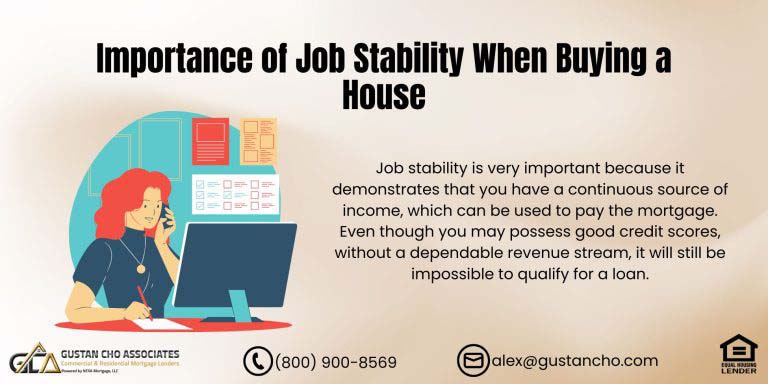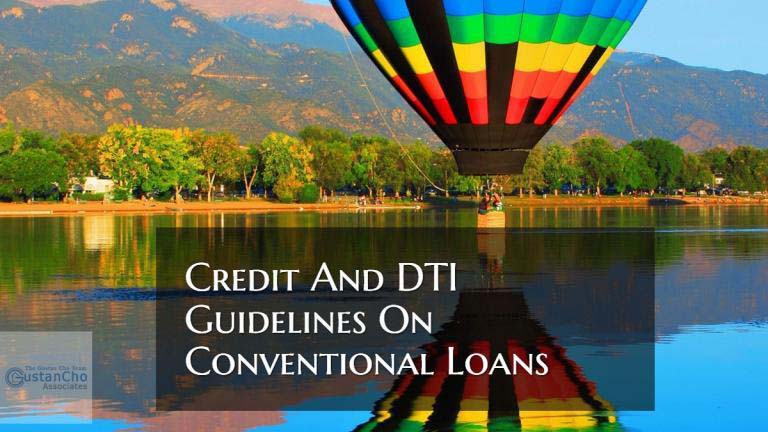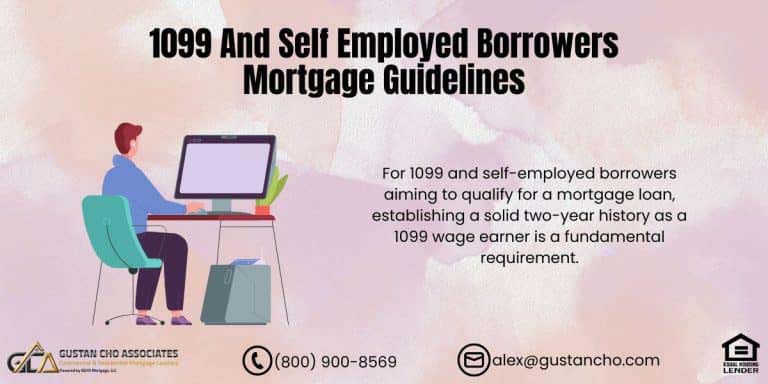Quick Answer: Mortgage Escrow Account for Purchase and Refinance
Ever wonder why your monthly mortgage payment feels higher than expected? Mortgage escrow accounts are often the reason. Your lender collects money monthly for property taxes and homeowners’ insurance, then pays those bills when due. Escrows are required on FHA/VA/USDA loans and common on conventional loans with low down payments—so your payment can change when taxes or insurance rise.
What Are Mortgage Escrow Accounts?
When you buy or refinance a home, one of the first surprises borrowers face is the mention of mortgage escrow accounts. If you’re wondering what they are, why lenders require them, and how they affect your monthly payment, you’re not alone.
A mortgage escrow account is a dedicated account your lender sets up to collect and pay certain home-related expenses on your behalf. These usually include:
- Property taxes
- Homeowners insurance
- Flood insurance (if required)
- Homeowners association (HOA) dues in some cases
When you pay your mortgage each month, your lender sets aside some of that money into an escrow account instead of having you pay bills like taxes and insurance directly. When it’s time for those bills to be settled, your lender takes care of them for you. This ensures your bills are always paid on time, protecting you and the lender from risk.
At Gustan Cho Associates, we believe knowledge is power. That’s why we break down mortgage escrow accounts in plain language—so you know exactly what to expect when buying or refinancing a home in 2025.
Confused About Escrows? We Make It Simple
Mortgage escrows can affect your monthly payment—learn how they work when buying or refinancing.
Are Mortgage Escrow Accounts Required?
Whether or not you need a mortgage escrow account depends on your loan program and down payment.
FHA, VA, and USDA Loans
Maintaining escrows is mandatory for FHA, VA, and USDA loans throughout the loan duration. Borrowers cannot waive this requirement even if they make a down payment of 20% or more. This regulation ensures that government-backed loans remain up to date with property taxes and insurance payments.
Conventional Loans
Conventional loans have specific guidelines regarding down payments and escrow accounts. When a borrower puts down less than 20%, escrow accounts are mandatory. Conversely, if a borrower puts down 20% or more, they have the option to request the waiver of escrow accounts, allowing them to manage their own tax and insurance payments. However, many borrowers still choose to maintain escrow accounts for the sake of convenience.
Jumbo and Non-QM Loans
When it comes to Jumbo and Non-QM loans, it’s important to note that rules can differ significantly between lenders. Some may mandate the establishment of escrow accounts regardless of the down payment size. However, at Gustan Cho Associates, we collaborate with investors who may offer the possibility of waiving escrow requirements, contingent upon the borrower’s creditworthiness and equity position.
Key takeaway: If you use an FHA, VA, or USDA loan, you must have a mortgage escrow account. If you’re going conventional with strong equity, you may have options.
How Mortgage Escrow Accounts Work in 2026
When you close a purchase or refinance, your lender collects a few months of property taxes and insurance upfront. This “escrow cushion” ensures enough money is in the account when bills come due.
What Your Monthly Mortgage Payment Includes (PITI)
Most monthly payments are a combination of:
- Principal (P): The amount you pay down on your loan balance
- Interest (I): The cost of borrowing money
- Taxes (T): Property taxes collected monthly and paid when due
- Insurance (I): Homeowners (and sometimes flood) insurance collected monthly and paid when due
- Sometimes included: HOA dues (only with some lenders/loan setups)
Simple example:
If your principal + interest is $1,850/month, and your taxes + insurance total $650/month, your full payment is $2,500/month. If taxes or insurance rise by $150/month, your new payment becomes $2,650/month—even though your loan rate didn’t change.
Why Did My Escrow Payment Go Up in 2026?
One of the most common borrower frustrations is seeing a monthly payment increase because of mortgage escrow accounts.
Here’s why it happens:
- Rising property taxes. Counties reassess home values, and tax bills increase.
- Higher insurance premiums. In 2025, insurance costs are up sharply in states hit by natural disasters like Florida, Texas, and California.
- New coverage requirements. Flood zones and wildfire zones may require extra coverage.
Your lender performs an escrow analysis every year. If your taxes or insurance went up, they’ll adjust your payment to ensure enough money is collected.
Important: This is not the lender profiting from you—it’s simply making sure mortgage escrow accounts have enough funds to pay your bills.
What to Do If Your Escrow Increases (Checklist)
Use this quick checklist the moment you get an escrow analysis letter or see your payment jump:
1. Confirm What Changed (taxes vs. insurance)
- Look for the line items showing new annual property taxes and new annual insurance premiums.
- Identify whether the increase is coming from one item or both.
2. Check for an Escrow Shortage (and your repayment options)
- If there’s a shortage, your lender usually offers two options:
- Pay the shortage as a lump sum, or
- Spread it over 12 months (higher monthly payment)
- Compare the two options and choose the one that fits your budget.
3. Review the Escrow Cushion (the “minimum required balance”)
- Most lenders are allowed to keep a cushion to prevent the account from going negative.
- If the cushion amount looks unusually high, call and ask:
- “What cushion are you using and why?”
- “Can you confirm it matches the allowed escrow cushion rule?”
4. Verify Your Property Tax Bill is Accurate
- Check your county tax website for:
- Current assessed value
- Exemptions (homestead, senior, veteran, etc.)
- Payment schedule (annual vs. semi-annual)
- If the assessed value jumped, explore appeal options and confirm your exemptions are applied.
5. Shop Your Homeowners’ Insurance (often the fastest win)
- If insurance drove the increase, get 2–3 quotes.
- Ask about:
- Deductible changes
- Wind/hail, wildfire, flood endorsements
- Bundling discounts
- If you switch policies, provide your lender with the new declarations page right away.
6. Confirm Your Coverage Didn’t Lapse
- If your policy lapsed, you may have to get lender-placed insurance (which is usually expensive).
- Fix it immediately by reinstating coverage or replacing the policy, then send proof to the lender.
7. Ask Your Lender for the Escrow Calculation Breakdown
- Use a simple script:
- “Can you walk me through the new escrow payment calculation and the shortage amount?”
- “What annual tax and insurance numbers did you use?”
- “When is the next escrow analysis scheduled?”
8. Plan for Next Year (so it doesn’t surprise you again)
- Assume taxes/insurance can rise again and build a cushion in your personal budget.
- If you’re in a disaster-prone area, consider reviewing coverage mid-year, not just at renewal.
Buying or Refinancing? Know How Escrows Impact Your Loan
From property taxes to insurance, escrows play a key role in your mortgage.
Escrow Shortages and Overages Explained
Two key terms every homeowner should know:
Escrow Shortage
An escrow shortage occurs when there isn’t sufficient money in your escrow account to pay bills, which can happen due to factors like tax increases, rising insurance costs, or miscalculations. In such cases, your lender may request a one-time payment to cover the deficit, or they might choose to address the shortage by increasing your monthly payments over a period of 12 months.
Escrow Overage
When you’ve paid more into your escrow account than necessary, this situation is called an escrow overage. In such cases, your lender has a couple of options: they can refund you the excess amount or apply that credit to your future payments.
At Gustan Cho Associates, we walk our clients through escrow statements line by line to ensure no surprises.
How to Read Your Escrow Analysis in 60 Seconds
Pull up your escrow analysis statement and scan these 5 things in order:
1. Your New Monthly Payment (the “bottom line”)
Look for the new total payment and the new escrow portion (taxes + insurance). This tells you how much of the change is escrow-driven.
2. The “Projected” Taxes and Insurance Numbers
Find the annual amounts your lender is using for:
- Property taxes
- Homeowners insurance (and flood, if applicable)
If these projected numbers are higher than last year, that’s the main reason your payment changed.
3. Shortage, Overage, or No Change
Look for these words (or a line item):
- Shortage: You’re behind—payment usually goes up
- Overage/Surplus: You overpaid—refund or credit may apply
- Balance OK: Payment may stay steady (or only minor change)
4. Your Escrow “Cushion” Requirement
Most statements show a required minimum balance (cushion). If your balance is expected to dip below it, your payment can rise even if bills didn’t change much.
5. The Lowest Balance Month (your risk month)
Many statements include a 12-month projection. Find the month where your balance is lowest—this is when:
- the biggest bill hits (taxes/insurance), and
- shortages are most likely to appear next year.
Quick Self-Check Questions
- Did taxes go up, insurance go up, or both?
- Is the payment increase mainly due to a shortage or to higher projected bills?
- Does the lender’s projected tax/insurance match what you see on your county/insurance documents?
If anything looks off, call your servicer and ask: “What annual tax and insurance amounts did you use, and what cushion did you apply?”
Can You Cancel Mortgage Escrow Accounts Later?
The answer is no for FHA, VA, and USDA loans. Escrows are required for the life of the loan.
For conventional loans, you can request an escrow waiver once you achieve 20% equity in your property. To do so, you should have a good payment history and submit a written request. Additionally, there may be a small fee associated with the escrow waiver.
Some lenders resist waivers, but at Gustan Cho Associates, we work to find investor options that fit your needs.
Pros and Cons of Mortgage Escrow Accounts
Pros:
- No surprise tax or insurance bills
- Easier budgeting with one monthly payment
- Reduced risk of late fees or lapsed coverage
- Required for many government-backed loans
Cons:
- Higher monthly payment compared to principal + interest alone
- Less control over the timing of tax and insurance payments
- Can’t cancel easily on FHA, VA, or USDA loans
- Escrow shortages can increase payments suddenly
Escrow at Closing: What to Expect
When closing on a purchase or refinance in 2025, lenders typically collect:
- One year of homeowners’ insurance upfront
- Two to three months of extra premiums (to build escrow cushion)
- Four to six months of property taxes, depending on local due dates
These funds seed your mortgage escrow accounts so your first tax and insurance bills are covered without issue.
Special 2025 Considerations for Mortgage Escrow Accounts
The year 2025 brings unique challenges affecting escrows:
- Inflation and rising costs. In 2025, soaring inflation rates have prompted many counties to raise property taxes to address budget shortfalls. Homeowners may find their escrow accounts increasingly strained as they adjust to these unexpected financial burdens.
- Natural disasters. Natural disasters like hurricanes, floods, and wildfires are happening more often and getting worse, so insurance rates have really shot up. Homeowners must be vigilant, as the rising costs may impact their escrow payments, further complicating their financial planning.
- Lender-placed insurance. Borrowers who allow their insurance policies to lapse may face the imposition of lender-placed insurance, which often comes with high premiums added to their escrow accounts. To prevent unexpected financial strain, it’s crucial for homeowners to maintain continuous coverage on their properties.
Borrowers in disaster-prone states should budget for possible escrow increases. At Gustan Cho Associates, we prepare clients ahead of time so they’re not blindsided by rising escrow bills.
Do All Lenders Handle Escrows the Same?
Not always. Each lender can have different rules on:
- Timing of escrow analysis
- Waiver eligibility on conventional loans
- Fees for escrow waivers
At Gustan Cho Associates, we operate with no overlays and transparent guidance. That means we follow agency guidelines and help borrowers understand their mortgage escrow accounts without extra roadblocks.
Mortgage Escrow Accounts vs Paying on Your Own
Some borrowers prefer to pay taxes and insurance directly. Here’s a comparison:
Escrow Account Option
This option helps borrowers make things easier by rolling their taxes and insurance into one monthly payment with their mortgage. It’s great to see that these important bills get taken care of automatically, so you don’t have to stress about missing due dates or dealing with any penalties.
Pay on Your Own
Choosing to pay taxes and insurance independently gives borrowers greater control over their finances, allowing them to manage and allocate funds according to their personal budgeting strategies. However, this method requires high discipline and effective savings habits to ensure that payments are made consistently and on time.
If you’re considering waiving escrow, ask yourself: Am I comfortable saving thousands of dollars yearly and paying large lump sums? If not, mortgage escrow accounts may be the safer route.
Final Thoughts: Should You Choose Mortgage Escrow Accounts?
For most borrowers, mortgage escrow accounts are the best choice. They make homeownership easier by ensuring taxes and insurance are always paid. While you may lose some control, you gain peace of mind.
At Gustan Cho Associates, we guide borrowers through every detail of the mortgage process—including escrows. Whether you’re purchasing your first home or refinancing in 2025, we’ll explain how escrows impact your monthly payment, your closing costs, and your long-term financial plan.
Call us at 800-900-8569, text us for faster service, or email us at alex@gustancho.com. Our loan officers are available evenings, weekends, and holidays. Let us show you how simple it can be to get approved for a mortgage—with no lender overlays, competitive rates, and full support through closing.
Know What’s in Your Monthly Payment
Escrow accounts can be confusing—we break it down for you in plain language.
Frequently Asked Questions About Mortgage Escrow Accounts:
What is a Mortgage Escrow Account?
A mortgage escrow account is a special account set up by your loan servicer. This account holds money for your property taxes and homeowners’ insurance, and sometimes for flood insurance. They add a small amount to your monthly mortgage payment, and when the bills are due, the servicer pays them for you.
Do I Need an Escrow Account with My Mortgage?
It depends on your loan type, down payment, and lender/servicer policy. Many loans require escrow (especially when equity is lower), while some borrowers with higher equity may qualify to waive it.
What Does it Mean to be “in Escrow” When Buying a Home?
“In escrow” usually refers to the period between an accepted offer and closing, during which a neutral third party holds funds and documents until the contract conditions are met. That’s different from the ongoing escrow account tied to your monthly mortgage payment.
Why Did My Escrow Payment Go Up?
The most common reasons are higher property taxes, higher homeowners’ insurance premiums, or an escrow shortage from the prior year that must be repaid (often spread across the next 12 months).
What is an Escrow Shortage (and How Does it Affect My Payment)?
A shortage occurs when your servicer expects your account balance to fall below the minimum required amount within the next 12 months, often due to increased taxes or insurance premiums. Many servicers allow you to pay the shortage in one lump sum or add it to your monthly payment.
What is an Escrow Surplus/Overage?
A surplus (overage) means you paid more into escrow than was needed. Depending on the amount and rules, your servicer may refund it or apply it toward future escrow payments.
Can I Remove (Waive) Escrow from My Mortgage?
Sometimes, typically on conventional loans, when you have sufficient equity and a strong payment history, and your lender/servicer allows it. There may be a formal request process, and some lenders charge a fee or adjust pricing to offset the added risk.
Is it a Good Idea to Waive Escrow?
It can be—if you’re disciplined about saving for hefty lump-sum tax and insurance bills. If you’re not, keeping escrow can reduce the risk of missed payments, lapsed coverage, penalties, or forced-placed insurance.
Do Escrow Accounts Earn Interest?
It depends on your state and your servicer. Some states require interest to be paid on escrow balances, while others don’t. If you want to know your situation, check your monthly statement and your state rule, then confirm with your servicer.
What Happens to Escrow When You Refinance?
When you refinance, the old escrow account is typically closed. Any remaining balance is refunded to you (after final bills are paid/posted). A new escrow account is usually set up with the new loan—often requiring new “prepaids” and an initial cushion at closing.
This blog about “Mortgage Escrows Guidelines on Purchase and Refinance” was updated on February 3rd, 2026.
Don’t Be Surprised at the Closing Table
Escrow accounts cover your taxes and insurance—know exactly what you’re paying and why.










